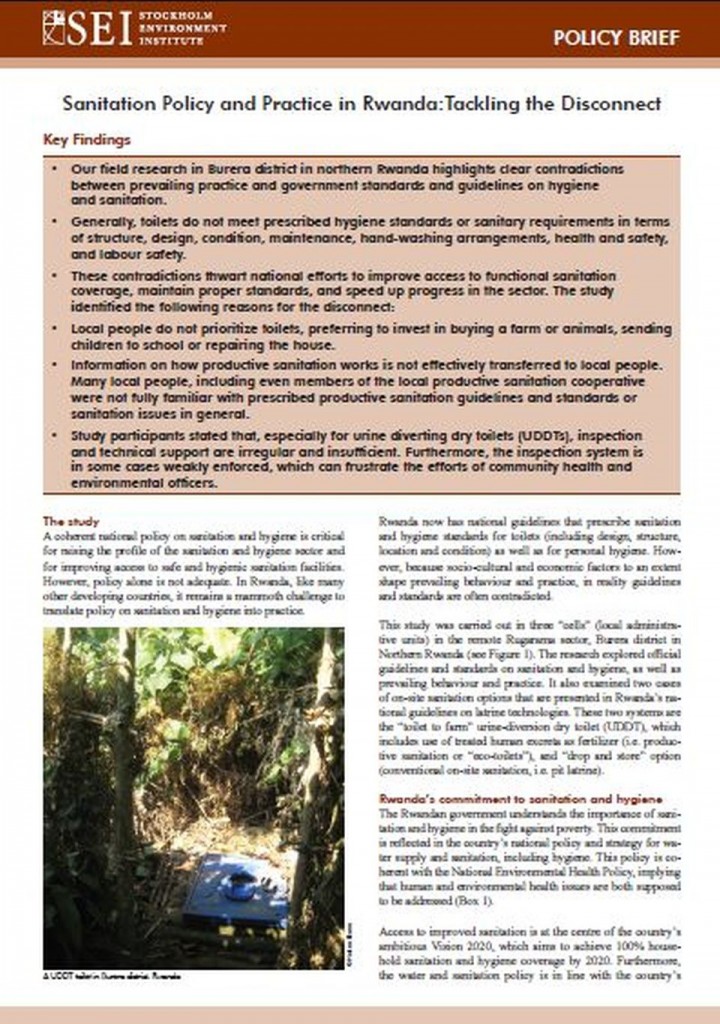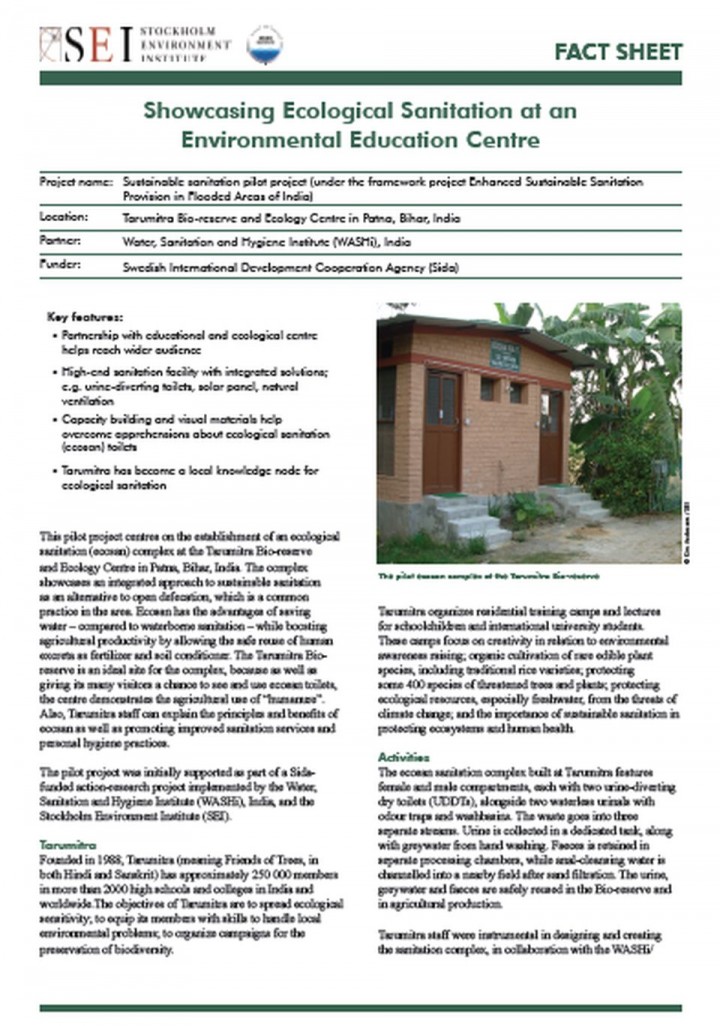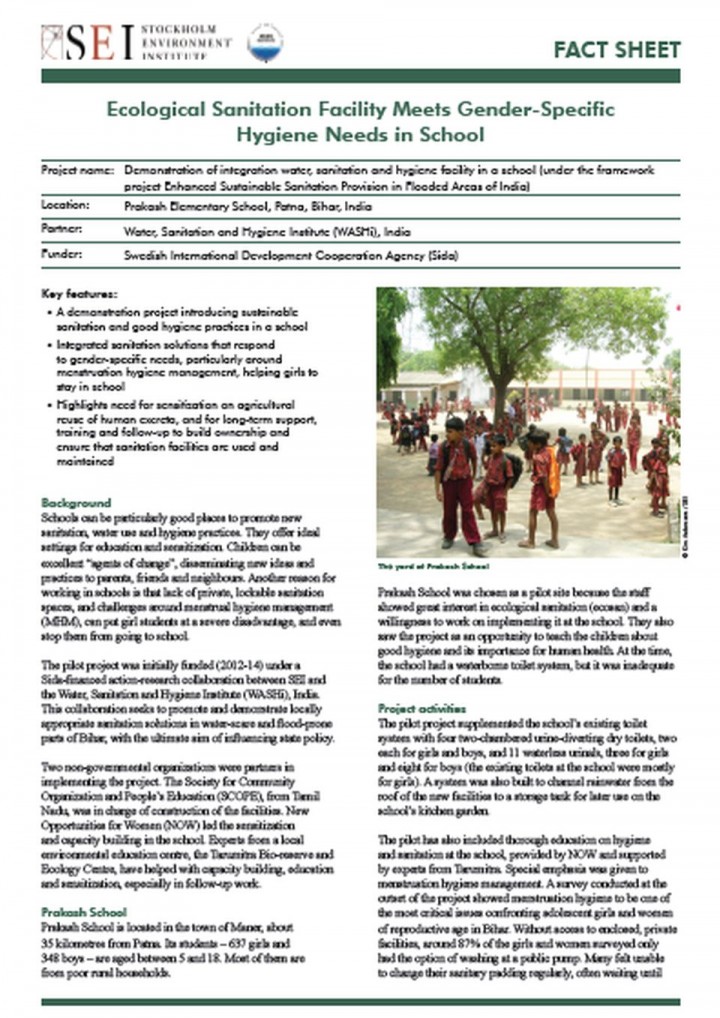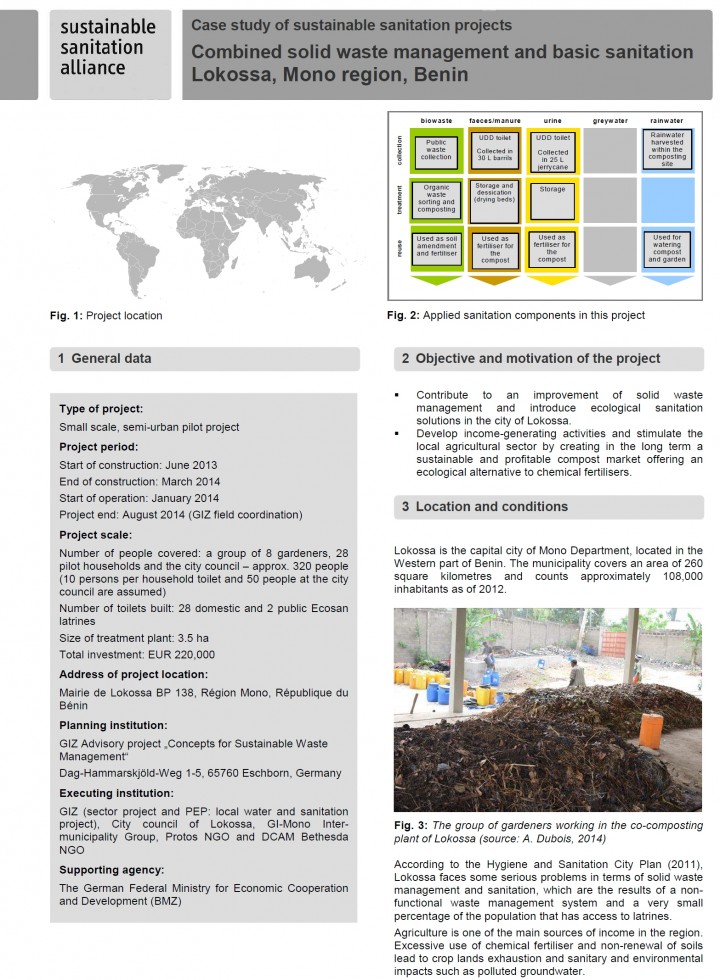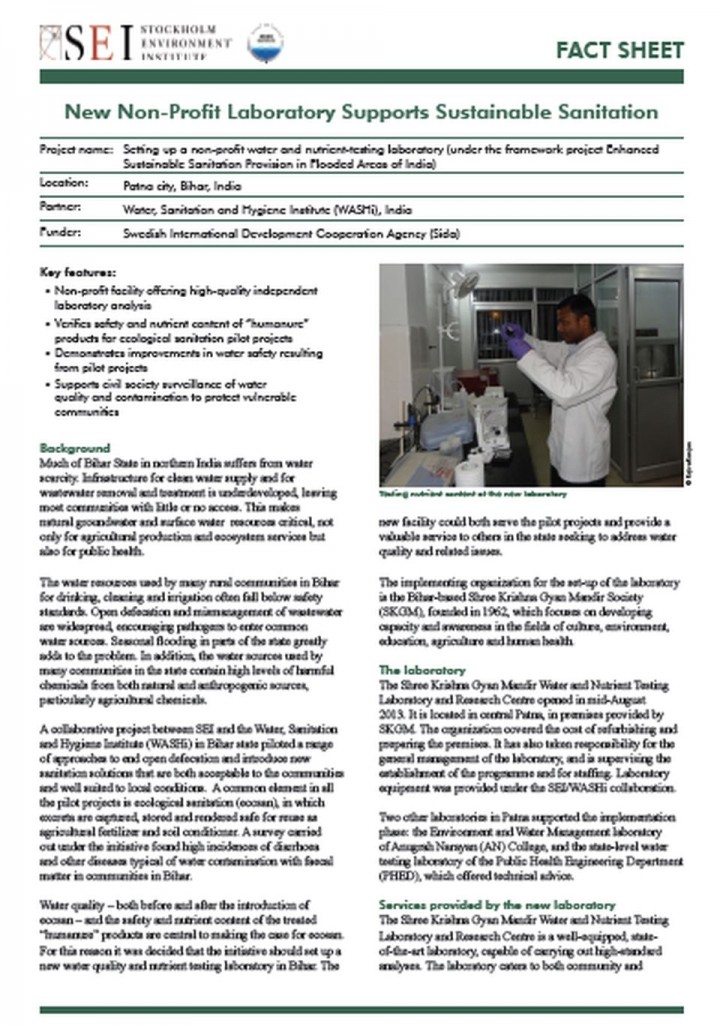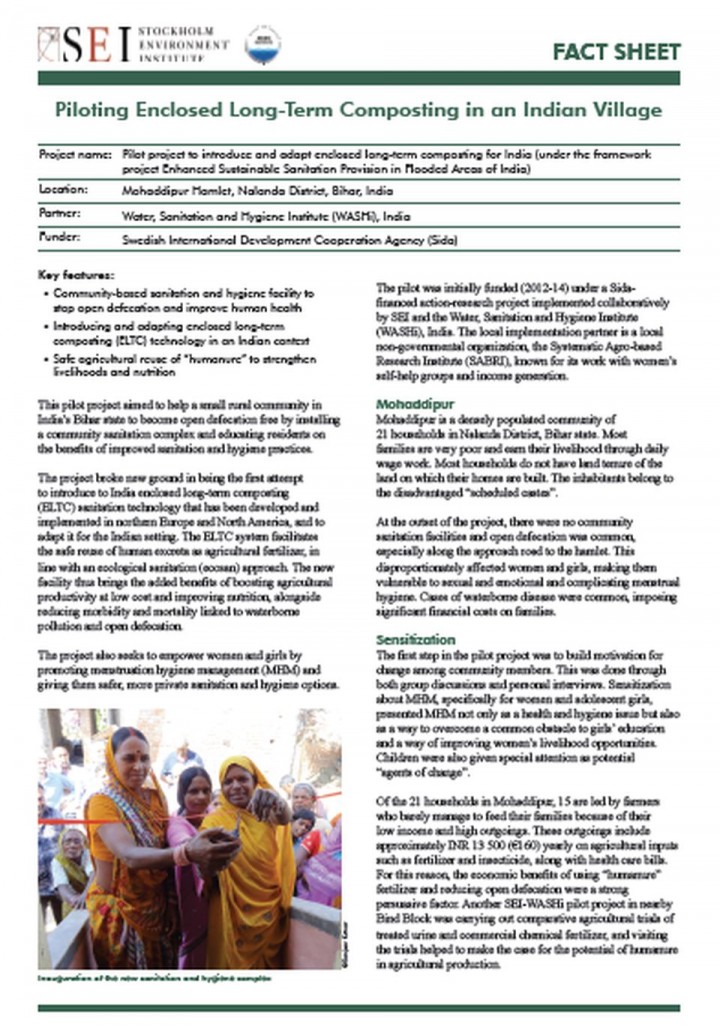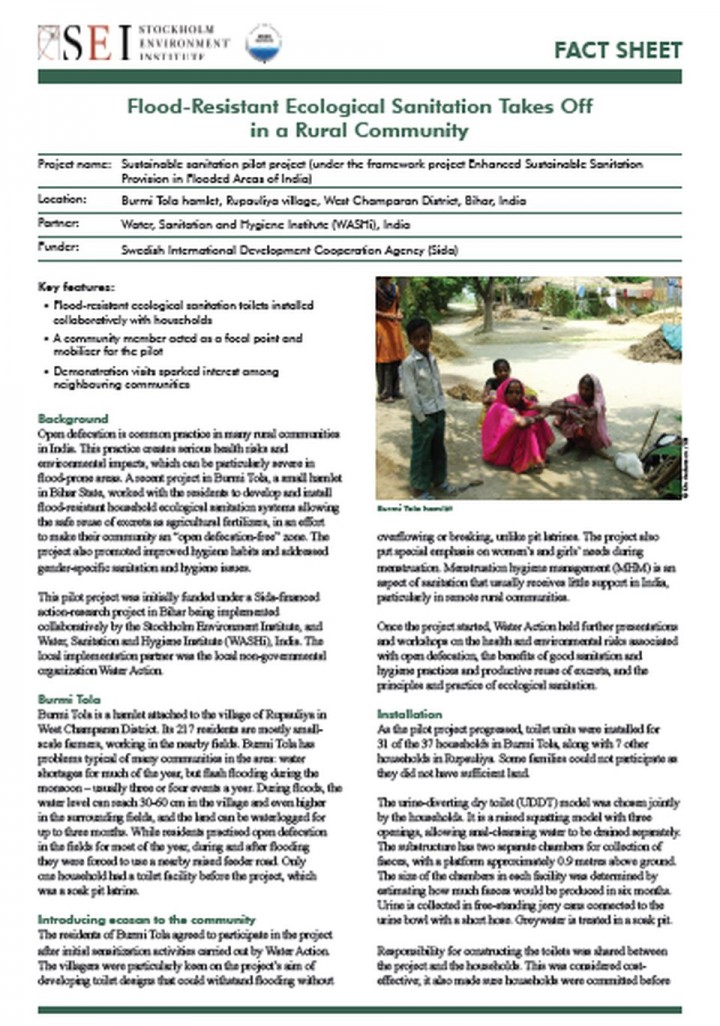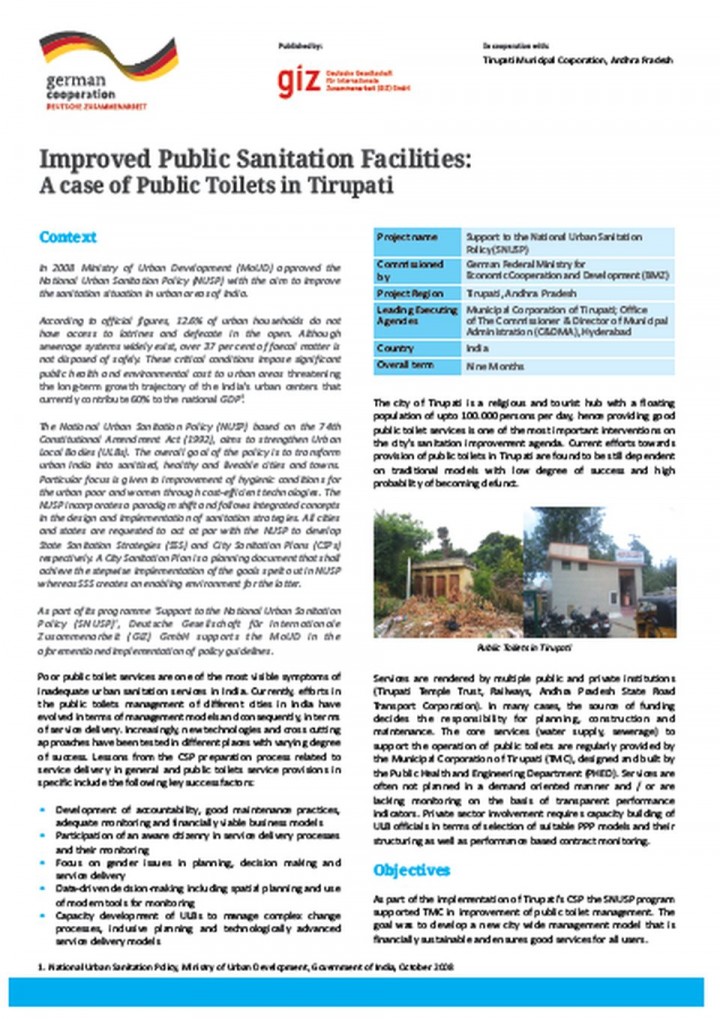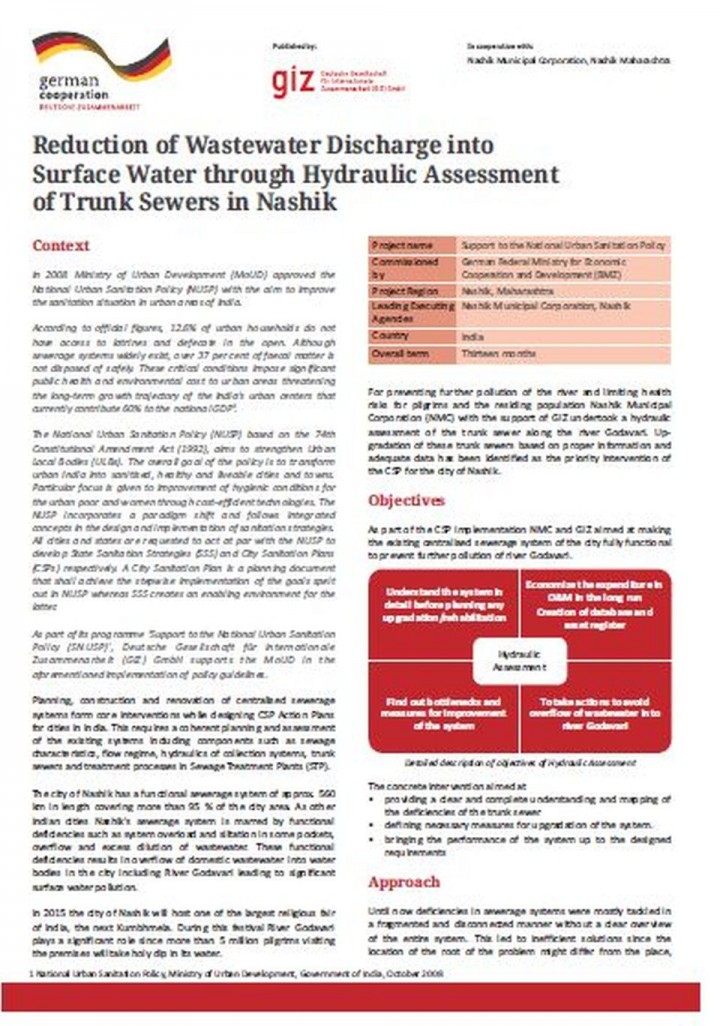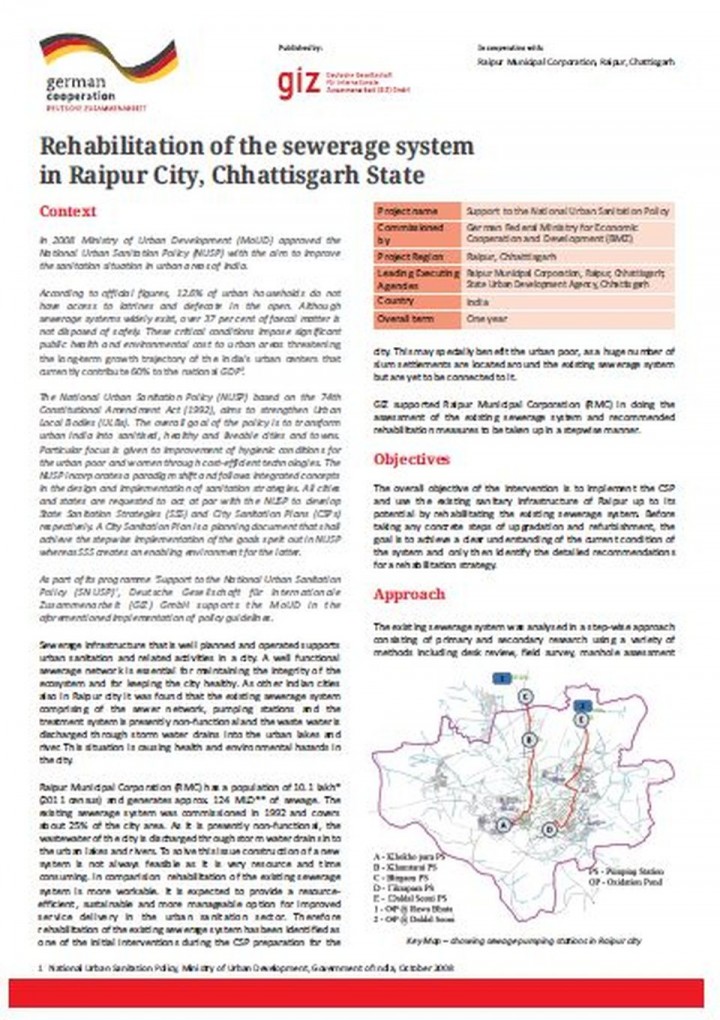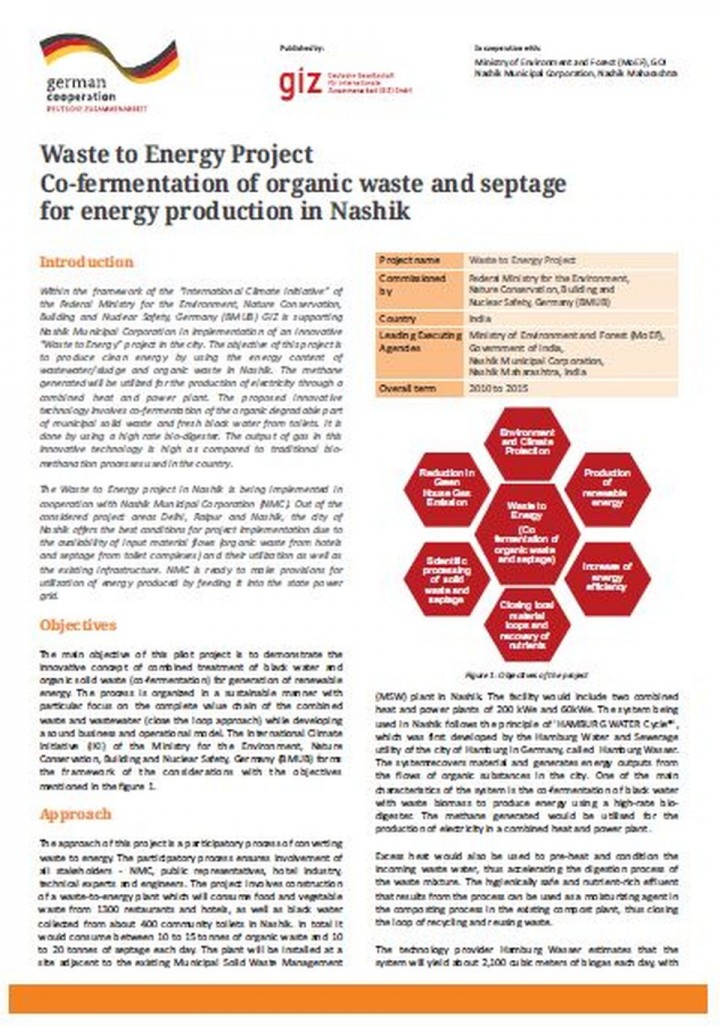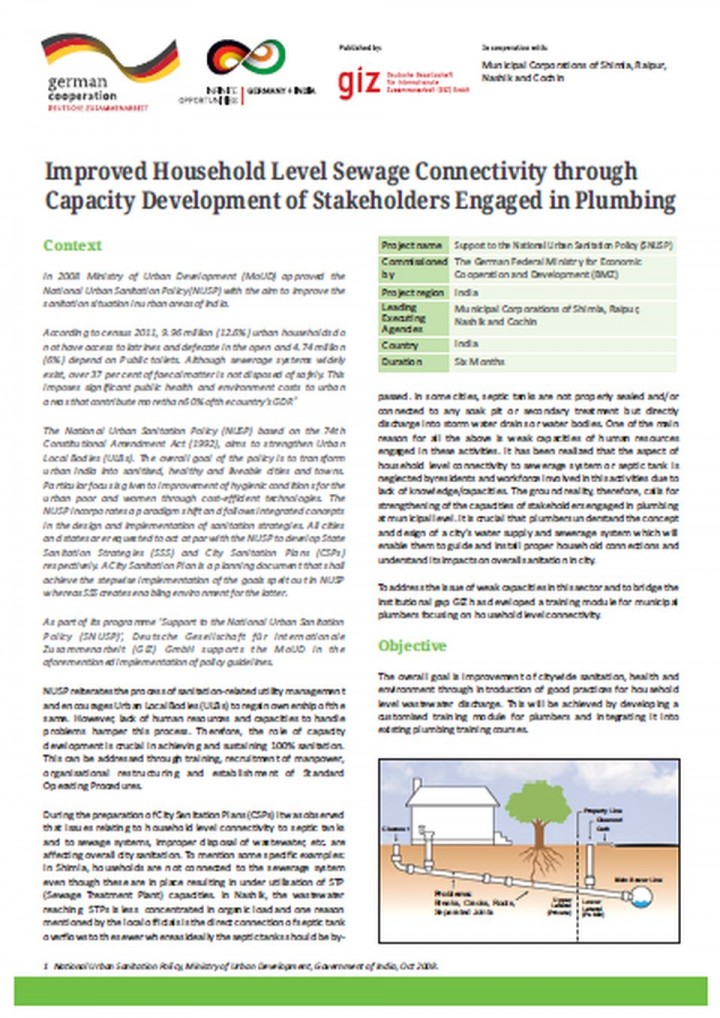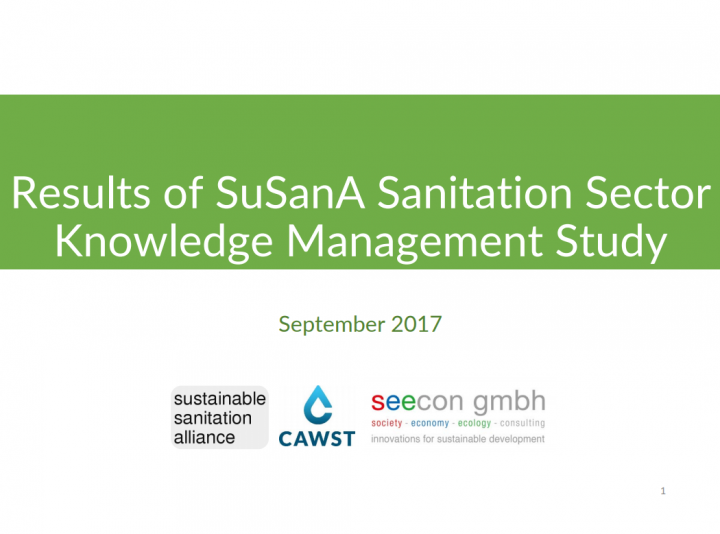Ekane, N. (2013) Sanitation policy and practice in Rwanda: Tackling the disconnect Policy brief
A coherent national policy on sanitation and hygiene is critical for raising the profile of the sanitation and hygiene sector and for improving access to safe and hygienic sanitation facilities. However, policy alone is not adequate. In Rwanda, like many other developing countries, it remains a mammoth challenge to translate policy on sanitation and hygiene into practice.
Andersson, K. (2014) Showcasing ecological sanitation at an environmental education centre Factsheet
This fact sheet describes how the Tarumitra Bio-reserve and Ecology Centre in Patna, northern India, is supporting a sustainable sanitation project through demonstration and education.
Andersson, K. (2014) Ecological sanitation facility meets gender-specific hygiene needs in school Factsheet
This fact sheet describes an attempt to promote health, hygiene and girls' access to education by installing a sustainable sanitation facility in a school outside Patna, northern India.
Dubois, A. (2014) Combined solid waste management and basic sanitation Lokossa, Mono region, Benin Case study of sustainable sanitation projects
This case study describes a combined waste management and sustainable sanitation project conducted by GIZ in Lokossa, Mono region, Benin. The project has been developed by the GIZ advisory project “Concepts for Sustainable Waste Management” in cooperation with the GIZ Water and Sanitation Programme (PEP) of Benin. Local partners include the municipality of Lokossa, the NGOs Protos, DCAM Bethesda and the municipal association GI-Mono.
Andersson, K. (2014) New non-profit laboratory supports sustainable sanitation Factsheet
This fact sheet describes the setting up of a new non-profit water- and nutrient-testing laboratory in Patna, India, to support a set of pilot projects promoting sustainable sanitation solutions in the state of Bihar and provide a valuable and unique service to the public.
Andersson, K. (2014) Piloting enclosed long-term composting in an Indian Village Factsheet
This fact sheet describes a pilot project that introduced enclosed long-term composting (ELTC) technology for the first time in the Indian context.
Andersson, K. (2014) Flood-resistant ecological sanitation takes off in a rural community Factsheet
This fact sheet describes a pilot project that supported construction of household ecological sanitation (ecosan) toilets specially adapted to be resistant to seasonal flooding, in a poor rural community in India's Bihar State.
Walther, D., Kanchi, N. (2014) Improved public sanitation facilities: A case of public toilets in Tirupati SNUSP II - Factsheet
The overall goal of the policy is to transform urban India into sanitised, healthy and liveable cities and towns. Particular focus is given to improvement of hygienic conditions for the urban poor and women through cost-efficient technologies.
Walther D., Yadav, J. (2014) Reduction of wastewater discharge into surface water through hydraulic assessment of trunk sewers in Nashik SNUSP II - Factsheet
The overall goal of the policy is to transform urban India into sanitised, healthy and liveable cities and towns. Particular focus is given to improvement of hygienic conditions for the urban poor and women through cost-efficient technologies.
Walther, D., Kanchi, N., Sharma, R. (2014) Rehabilitation of the sewerage system in Raipur City, Chhattisgarh State SNUSP II - Factsheet
The overall goal of the policy is to transform urban India into sanitised, healthy and liveable cities and towns. Particular focus is given to improvement of hygienic conditions for the urban poor and women through cost-efficient technologies.
Walther D., Yadav, J. (2014) Waste to energy project co-fermentation of organic waste and septage for energy production in Nashik SNUSP II - Factsheet
The approach of this project is a participatory process of converting waste to energy. The participatory process ensures involvement of all stakeholders - NMC, public representatives, hotel industry, technical experts and engineers.
Walther, D., Yadav, J., Sharma, R. (2013) Improved household level sewage connectivity through capacity development of stakeholders engaged in plumbing SNUSP - Factsheet
The overall goal is improvement of citywide sanitation, health and environment through introduction of good practices for household level wastewater discharge. This will be achieved by developing a customised training module for plumbers and integrating it into existing plumbing training courses.
Pérez Sánchez, J. D. (2013) Identificación y cuantificación automática de huevos de helmintos en muestras de agua residual (in Spanish) Automatic identification and quantification of helminth eggs in wastewater samples
Rudolph, H.-H., Mbalo, D., Becker, A., Weber, L. (2014) Water, Life and Perspectives Intergenerational Dialogue in Mathare, Kenya [DRAFT]
Jiménez Cisneros, B. (2014) Software to identify and quantify pathogenic helminth eggs Various documents on results from research grant
Andersson, K. (2014) Agricultural trials demonstrate benefits of urine harvesting and sustainable sanitation Fact Sheet
Ekane, N. (2013) Sanitation Policy and Practice in Rwanda: Tackling the Disconnect Policy brief
GIZ - SNUSP (2013) Handbook for plumbers on household connectivity
SEI (2018) Documents from the SuSanA BMGF Grant led by SEI (Phases 1 to 3) Various documents from this project
This library entry contains documents produced during a grant that Arno Rosemarin from Stockholm Environment Institute was leading and which was funded by the Bill and Melinda Gates Foundation. Further information and a discussion is available on the SuSanA discussion forum (see link below). +++++++++ Phase 1: Title: "Expansion of the Sanitation Network into the SuSanA Community" Duration: Nov. 2012 - Apr. 2014 The purpose of this project was to […]
WASTE (2014) Emergency sanitation project Progress report
The Emergency Sanitation Project (ESP) aims to increase the global understanding of current and future emergency sanitation solutions and to propose new concepts and modular technologies for safe excreta disposal and hygiene in emergency settings that are applicable in a variety of situations and contexts. This report summarizes progress of the ESP’s work funded by the US Office for Foreign Disaster Assistance (OFDA). The ESP commenced […]
